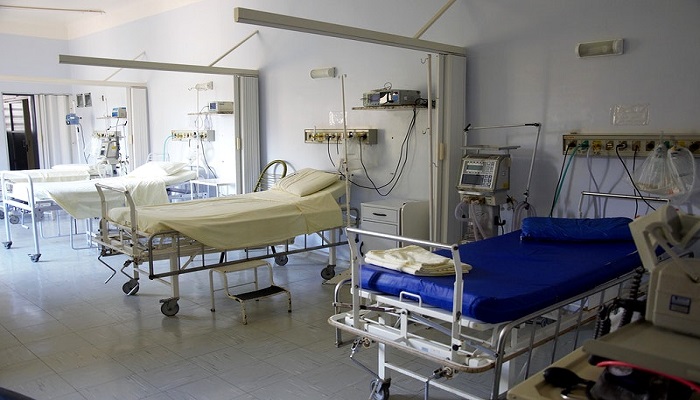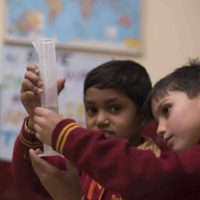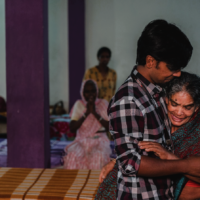IN the vast health tapestry of India’s healthcare landscape, dementia and Alzheimer’s disease often remain hidden in the shadows. Despite the growing prevalence of these debilitating conditions, awareness of them remains alarmingly low, particularly in rural and underdeveloped areas. The Dementia India Report 2010 by the Alzheimer’s and Related Disorders Society of India (ARDSI) sheds light on the pressing issue, revealing that approximately 3.7 million Indians were living with dementia in 2010, with projections indicating a staggering rise to 7.6 million by 2030. This exponential increase demands urgent attention, awareness, and action.
According to ARDSI, over 15 million elderly persons in India are at risk of dementia due to cognitive impairment resulting from COVID-19. The pandemic exacerbated dementia symptoms and signs in the country, leading to a rise in patients.
The silent erosion of cognitive abilities
Alzheimer’s disease, the most common form of dementia, silently erodes the cognitive abilities of its victims, leaving them and their families in profound distress. To combat this crisis effectively, we must start with awareness. In this regard, family members and primary care physicians are the primary agents of change. Recognising the early signs of Alzheimer’s is crucial for timely intervention and a better quality of life for patients.
A national awareness campaign targeted towards these groups can make a significant impact. By equipping them with the knowledge to identify symptoms and seek medical help, we can delay the onset of the disease and improve patient outcomes.
World statistics on dementia: a fact sheet
- Every three seconds, someone in the world develops dementia.
- Informal care hours for those living with dementia amass to 133 billion hours per year, equivalent to the workload of 67 million full-time workers.
- 1 in 4 people believe that dementia is unpreventable.
- The annual global cost of dementia surpasses US$ 1.3 trillion and is projected to double, exceeding US$ 2.8 trillion annually by 2030. (Source: https://www.alzint.org/resource/dementia-fact-sheet/)
Need for comprehensive research
In medicine, research on dementia and related diseases in India remains relatively scarce. Our current understanding and estimates of dementia incidence mostly stem from small regional studies. Given India’s diverse lifestyles and dietary habits, there is likely to be considerable variation in dementia prevalence across states. A comprehensive nationwide investigation into the current incidence and burden of dementia and Alzheimer’s is imperative.
Moreover, genetic testing services for the Alzheimer’s gene (APOE-e4) should be made available, and funds should be allocated for clinical trials tailored to the Indian context. Genetic, lifestyle, and environmental factors all play a role in Alzheimer’s risk, making it essential to conduct research specific to India’s unique demographic and cultural landscape.
The economic and emotional toll
Beyond the personal toll it takes on patients, Alzheimer’s disease imposes significant economic and non-economic costs on society. The ARDSI 2010 report estimated the societal costs of dementia at 147 billion INR in 2010, with a projected threefold increase by 2030. These costs include direct expenses such as medication and physician fees, but most of the economic burden arises from informal caregiving.
Family members, often women, provide the majority of caregiving, leading to lost wages and income due to absenteeism from work. The emotional and psychological strain on caregivers is profound. Addressing this challenge requires establishing reliable institutional care facilities, both short-term and long-term, for Alzheimer’s patients.
Agewell Foundation: a beacon of hope
Agewell Foundation, renowned as one of India’s foremost charities dedicated to the well-being of elderly individuals, has implemented the Integrated Program for Older Persons. This initiative’s primary objective is to enhance senior citizens’ quality of life by offering essential amenities such as food, shelter, medical care, and even opportunities for entertainment. The program encompasses various components, including Senior Citizens’ Homes for destitute individuals and elderly women, Continuous Care Homes for those affected by Alzheimer’s disease or dementia, Mobile Medicare services in remote and underserved areas, Physiotherapy Clinics tailored to senior citizens’ needs, and Regional Resource and Training Centres (RRTCs) responsible for monitoring and providing technical support. Agewell Foundation’s unwavering commitment to improving the lives of senior citizens reflects their dedication to a noble cause, ensuring that elderly individuals receive the care and support they deserve in their golden years.
The road ahead
But India has a long way to go. Investment in healthcare infrastructure and training of healthcare professionals is vital. The National Program for Health Care of the Elderly, under the Ministry of Health and Family Welfare, should extend its focus to dementia and Alzheimer’s care. NGOs like ARDSI, which offer certification courses in dementia care, play a crucial role, but a more comprehensive approach is necessary to meet the increasing demand for these services.
As India’s population ages, addressing the Alzheimer’s and dementia crisis becomes an urgent public health imperative. A well-defined strategy that emphasises research into degenerative diseases and investment in healthcare personnel training is essential.
By raising awareness, conducting region-specific research, and investing in institutional care and professional training, we can offer hope and support to the millions affected by dementia and Alzheimer’s in India. It’s time to highlight this often-overlooked issue and work collectively to create a brighter, more dementia-aware future for our nation.

Give exists to alleviate poverty by enabling the world to give. Established in 2000, Give, together with its partners, is the largest and most trusted giving platform in India. Give enables individuals and organizations to raise and donate funds conveniently to any cause they care about, with offerings including crowdfunding, corporate giving, cause marketing, and philanthropy consulting. Give’s community of 2.6M+ donors supports 3,000+ verified nonprofits, serving 15M+ people across the country.
Discover more from give.do
Subscribe to get the latest posts to your email.





